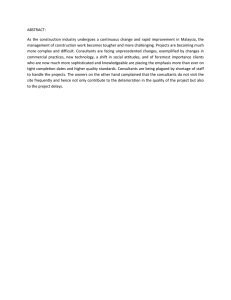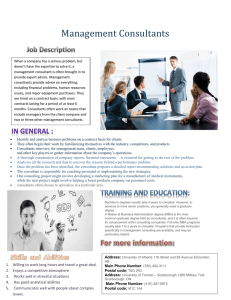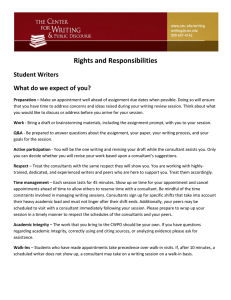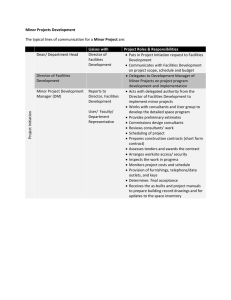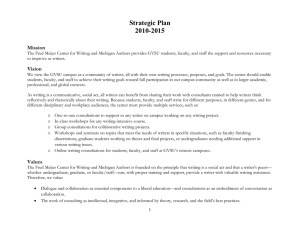Communications Center Objectives
advertisement
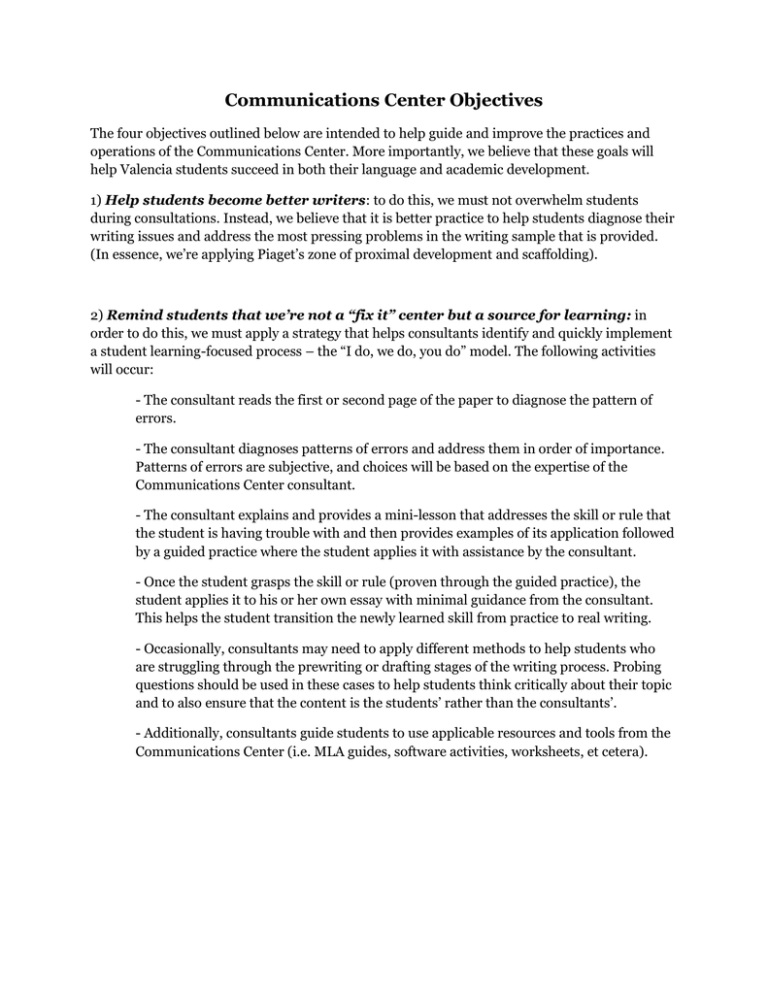
Communications Center Objectives The four objectives outlined below are intended to help guide and improve the practices and operations of the Communications Center. More importantly, we believe that these goals will help Valencia students succeed in both their language and academic development. 1) Help students become better writers: to do this, we must not overwhelm students during consultations. Instead, we believe that it is better practice to help students diagnose their writing issues and address the most pressing problems in the writing sample that is provided. (In essence, we’re applying Piaget’s zone of proximal development and scaffolding). 2) Remind students that we’re not a “fix it” center but a source for learning: in order to do this, we must apply a strategy that helps consultants identify and quickly implement a student learning-focused process – the “I do, we do, you do” model. The following activities will occur: - The consultant reads the first or second page of the paper to diagnose the pattern of errors. - The consultant diagnoses patterns of errors and address them in order of importance. Patterns of errors are subjective, and choices will be based on the expertise of the Communications Center consultant. - The consultant explains and provides a mini-lesson that addresses the skill or rule that the student is having trouble with and then provides examples of its application followed by a guided practice where the student applies it with assistance by the consultant. - Once the student grasps the skill or rule (proven through the guided practice), the student applies it to his or her own essay with minimal guidance from the consultant. This helps the student transition the newly learned skill from practice to real writing. - Occasionally, consultants may need to apply different methods to help students who are struggling through the prewriting or drafting stages of the writing process. Probing questions should be used in these cases to help students think critically about their topic and to also ensure that the content is the students’ rather than the consultants’. - Additionally, consultants guide students to use applicable resources and tools from the Communications Center (i.e. MLA guides, software activities, worksheets, et cetera). 3) Help students become independent learners: consultants are a source of accountability. In order to help students become accountable and independent learners, clearly defined and communicated rules must be in place and implemented. The rules are as follows: - Students should have reviewed their essays before coming to the Communications Center or review their work as they wait for a consultation. This will eliminate unnecessary time spent on typographical errors. Ideally, students should come prepared to talk about specific issues (it is recommended that students highlight or underline problem areas of their paper to help guide their discussion during consultations). If students have trouble identifying specific issues, then the consultants can solicit this information from them. - Students should have an assignment sheet OR should be knowledgeable about their assignment. They need to be prepared to discuss the assignment the moment they sit down with their consultant. - Students must know who their professor is and the class they’re taking. - It’s important for consultants, students, and professors to understand that teaching one or two skills in 30 minutes will result in the student learning something. Therefore, papers will be improved but may not be perfect. - Consultants are not responsible for plagiarism. The consultants can make suggestions that students cite their sources but cannot guarantee the students will follow their advice. 4. Build rapport with faculty: - It’s important to set realistic expectations. The overall goal of the Communications Center is to improve students’ writing skills. The learning-centered approach that is being suggested will help students become better independent writers but not necessarily perfect ones. - We should maintain open communication between faculty and staff in the Communications Center. The coordinators are approachable and happy to listen to feedback and discuss concerns. - We trust that we’re all here for the same goal – to help students learn, and that each of us is professional and knowledgeable about our field and willing to do what it takes to help our students achieve their goals. - We encourage faculty involvement and welcome faculty to do office hours in the lab, create and run workshops in the lab, offer expertise and training where needed, and attend Communications Center meetings.

